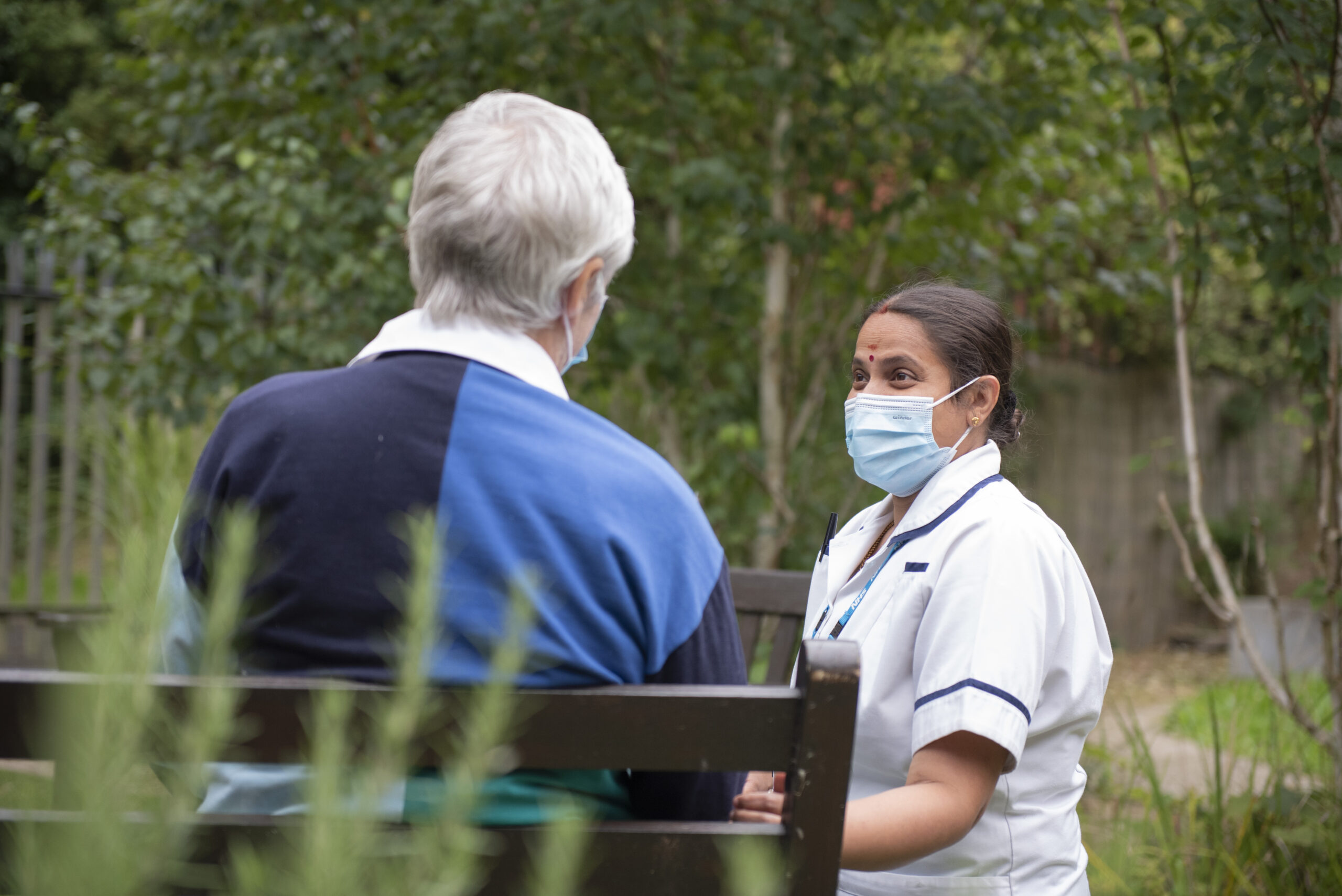Advance Care Planning
Advance Care Planning
Let us make a plan with you for what you want your future care to look like. Advance care planning is voluntary.
- Advance care planning is an opportunity for you to explore your options and express your wishes for your future care
- You may not want to engage in such a conversation and that is fine
- Advance care planning can occur at any time you choose
- You may wish to discuss your wishes with your partner, relatives and carers
- Include anything that is important to you no matter how trivial it seems
- Provide copies to those who need to know your wishes
- Advanced care plans can be reviewed and updated at any time
It involves a series of discussions between you and those who provide care for you, for example, your nurses, doctors, care home manager or family members. During these discussions you can explore your options and express your views, preferences, priorities and wishes about your future care.
The wishes you express during advance care planning are personal to you and can be about anything to do with your future care.
This is relevant for any individual who wishes to plan for their future care. You would especially benefit from advance care planning if you:
- have a long term condition or an advanced illness that cannot be cured
- have an illness where your mental capacity is expected to fluctuate or be lost
- are facing changes with your health and care needs
- are facing major surgery
- are at risk of your health deteriorating rapidly
- Any religious or spiritual beliefs you have
- The name of a person/people you may want to act on your behalf
- Your preference for place of care and, when the time comes, for place of death
- Your thoughts on different treatments
- Concerns or solutions about issues related to your health
Your wishes can be documented on the Electronic Palliative Care Coordination System (EPaCCS), which is found on your Greater Manchester Care Record.
This record can be accessed by any healthcare professional involved in your care, so they can ensure they are providing care in line with your wishes, especially if you are not able to voice them yourself.
You may decide to express a very specific view about a particular medical treatment which you do not want to have.
This can be done by making a legally binding advance decision to refuse treatment, which will only be used if you lose the ability to make your own decisions about your treatment. If you make an advance decision that refuses treatment that is life sustaining it must be in writing, signed and witnessed.
You may want to give another person legal authority to make decisions on your behalf.
A Lasting Power of Attorney (LPA) enables you to give another person the right to make decisions about your property and financial affairs and/or your health and welfare. Decisions about care and treatment are covered by a health and welfare LPA, which can only be used when you lose the ability to make decisions for yourself. There are special rules about appointing an LPA. You can get a form from the Office of the Public Guardian (OPG) or stationery shops that provide legal packs.
The form will explain what to do. Your LPA will need to be registered with the Office of Public Guardian before it can be used. Those who provide care for you will want to see a copy of your LPA.
Cardiopulmonary resuscitation (CPR) is a treatment that aims to restart the heart and lungs in people who have stopped breathing and whose heart has stopped beating. CPR is not beneficial for everyone and can cause serious complications.
A healthcare professional will discuss this with you if it is felt that CPR will not work for you.
You may wish to consider discussing organ donation with your family, arranging to complete a will and consider funeral arrangements.
Planning Ahead
https://www.hospiceuk.org/information-and-support/your-guide-hospice-and-end-life-care/planning-ahead
Bolton Hospice Wellbeing Hub – 01204 663066
https://www.boltonhospice.org.uk/wellbeing-hub
https://compassionindying.org.uk/
https://www.resus.org.uk/public-resource
Cancer Information Support Centres:
- Royal Bolton Hospital 01204 390624
- Giles House at Bolton Hospice 01204 663059
- Bolton One 01204 462442
https://www.boltonmacmillansupport.org.uk/
X – @boltonmacinfo
Facebook – Bolton MacMillan Cancer Info
